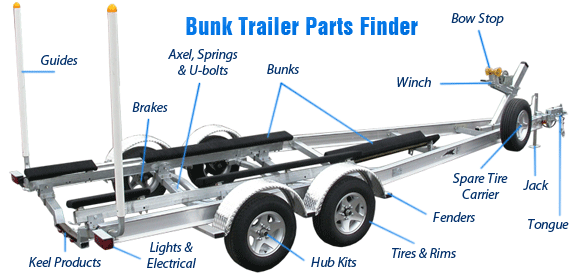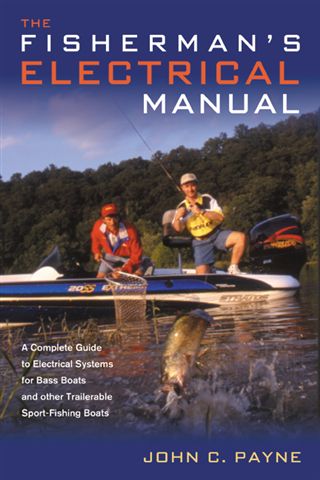About buying a boat trailer
Buying a Boat Trailer, what to Know Before You Tow. Purchasing a boat trailer is a critical decision that affects transport safety, convenience, and long-term vessel care. Whether you're towing a small tinny or a large offshore cruiser, selecting the right trailer involves more than matching size — it requires attention to build quality, legal compliance, and operational fit
If you have a very expensive trailer boat then you need to get a quality trailer to go with it. The trailer is not just a simple frame with wheels attached to strap the boat onto.
The boat trailer must be able to withstand the rigours of towing across very diverse road conditions, and also the launching and recovery of your boat, not all ramps are easy.
Smaller basic boats generally require relatively simple trailers if they tend to do local trips. The larger the boat gets the more sophisticated the trailer becomes.
About the boat trailer
Trailer type is the first consideration. Bunk trailers use carpeted boards to support the hull and are ideal for fiberglass boats, offering better hull protection. Roller trailers, with multiple pivoting rollers, suit heavier boats and make launching easier on shallow ramps. Some trailers combine both systems for versatility.
Weight capacity is crucial. The trailer must support the boat’s dry weight plus fuel, gear, and accessories. Overloading leads to axle strain, tire failure, and braking issues. Always check the Aggregate Trailer Mass (ATM) and Gross Trailer Mass (GTM) ratings, ensuring they align with your towing vehicle’s capacity.
Material choice affects durability. Galvanised steel is cost-effective and strong, but prone to rust if not maintained. Aluminium trailers are lighter and corrosion-resistant, ideal for saltwater use, though typically more expensive.
About the boat trailer
What to consider?
The trailer must consider the following important factors and most people do not do so.
Your boat is valuable and you need to make sure its protected when towing:
- the weight of the boat, this is important factor and this also impacts on your towing vehicle and towing capability
- the length of the boat, and this impacts on weight, braking system and so on,
- the beam or width of the boat,
- the center of gravity,
- the hull form or shape, and how that can be safely supported with chafing or rubbing when on the road, the security of the boat on the trailer is a major under estimated factor
- engines or outboards motors on the boat when towing, there is a lot of weight on the end, and this changes the towing characteristics
- the type of winch to be used, and whether its manual or electric, and is it powerful enough to pull up the boat when the trailer is on boat ramp angles
- the tire sizes
- the braking system, often under rated
- the hitching arrangement
- single or double axle trailers
- suspension systems, and when highway driving or on some less maintained roads you will soon know its not strong enough
Buying a boat trailer in America
In the U.S., trailer towing laws vary by state but share core requirements. Trailers over 1,500–5,000 lbs typically require brakes, depending on the state. Safety chains, working lights (brake, tail, turn), and reflectors are mandatory nationwide. Maximum trailer length ranges from 40 to 53 feet, and speed limits may be lower when towing. A standard driver’s license suffices for most non-commercial trailers, but a CDL is needed for trailers over 10,000 lbs used commercially. Always match hitch ratings, check tire condition, and ensure proper load distribution. State laws apply when traveling, regardless of trailer registration origin
Buying a boat trailer in Australia
Braking systems are mandatory for trailers over 750 kg GTM in Australia. Options include mechanical override brakes or electric brakes, with electric offering better control but requiring compatible tow vehicle wiring. Ensure compliance with ADR (Australian Design Rules) and state regulations.
Suspension and axle setup influence ride quality and maintenance. Leaf springs are common and robust, while torsion axles offer smoother towing and lower maintenance. Dual-axle trailers provide better stability for larger boats.
Lighting and wiring must meet Australian road standards. LED lights are preferred for longevity and brightness. Check plug compatibility (typically 7-pin or 12-pin flat) and ensure waterproofing and corrosion protection.
Finally, consider launching conditions. If you frequent shallow or tidal ramps, opt for extended drawbars or tilt mechanisms. For off-road access, look for high-clearance frames and rugged tires.
About buying a boat trailer
What to consider about construction?
There are aluminum trailers and there are galvanized steel trailers, all are specifically designed to reduce corrosion. Then you have to consider the number of axles to be used, assisted braking and then of course a reliable electrical system. Support for the hull is important and you need good base support and adjustable supports to suit multi-chine vessels
Some manufacturers have trailers to suit particular large production boats and also ranges just to suit the boat lengths
In summary, buying a boat trailer requires balancing technical specs, regulatory compliance, and practical use scenarios. A well-matched trailer ensures safe transport, easier launching, and long-term protection for your vessel. Investing wisely upfront saves time, money, and headaches down the road.
The latest information and hints on buying a boat trailer are here along with boat trailer parts.

